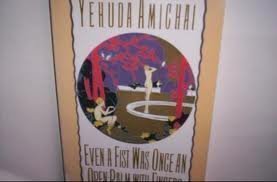What do you think?
Rate this book


96 pages, Hardcover
First published January 1, 1989
“...there is one suitcase that returns and disappears again
and returns again, ever so slowly, in the empty hall...
This is how your quiet figure passes by me”
“Furtively he eavesdrops on his parents’ talk,
he doesn’t understand but he grows on those words
as a plant grows without understanding
oxygen, nitrogen, and other elements.”